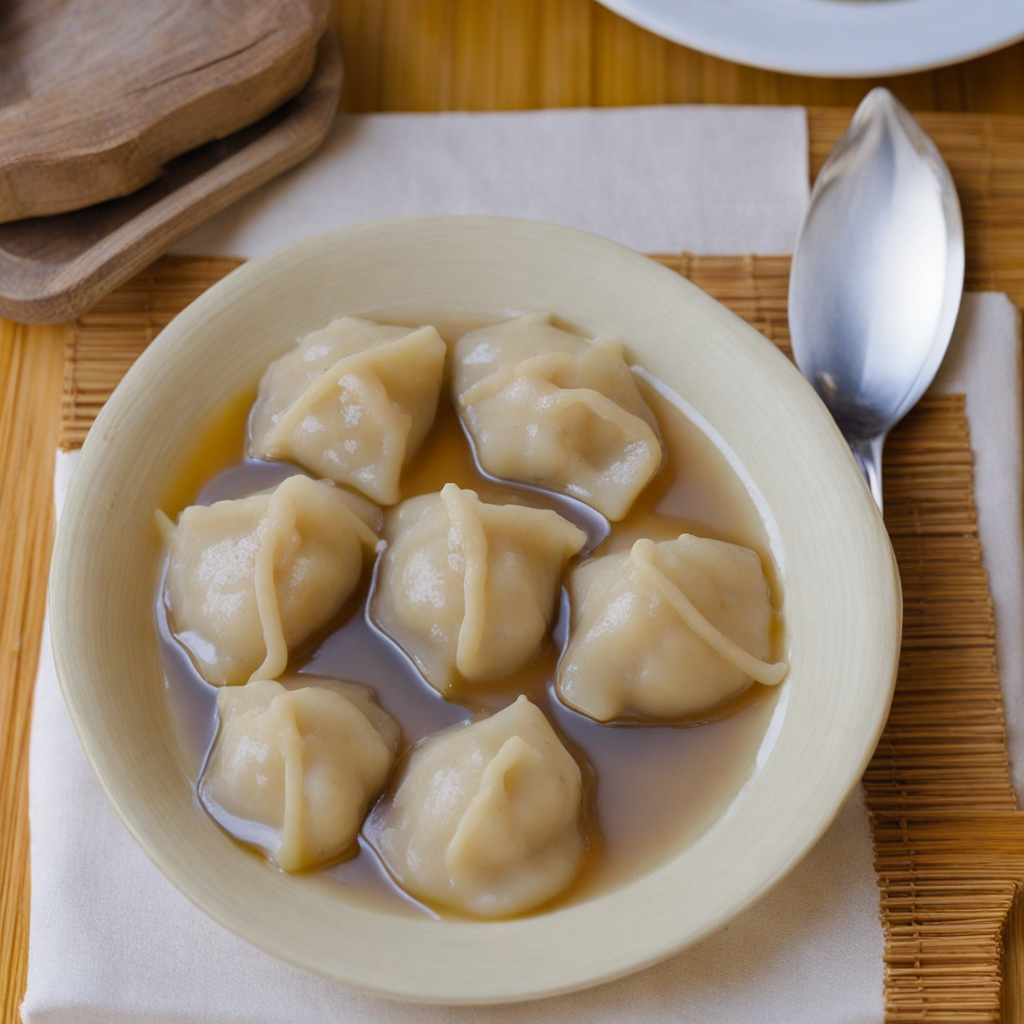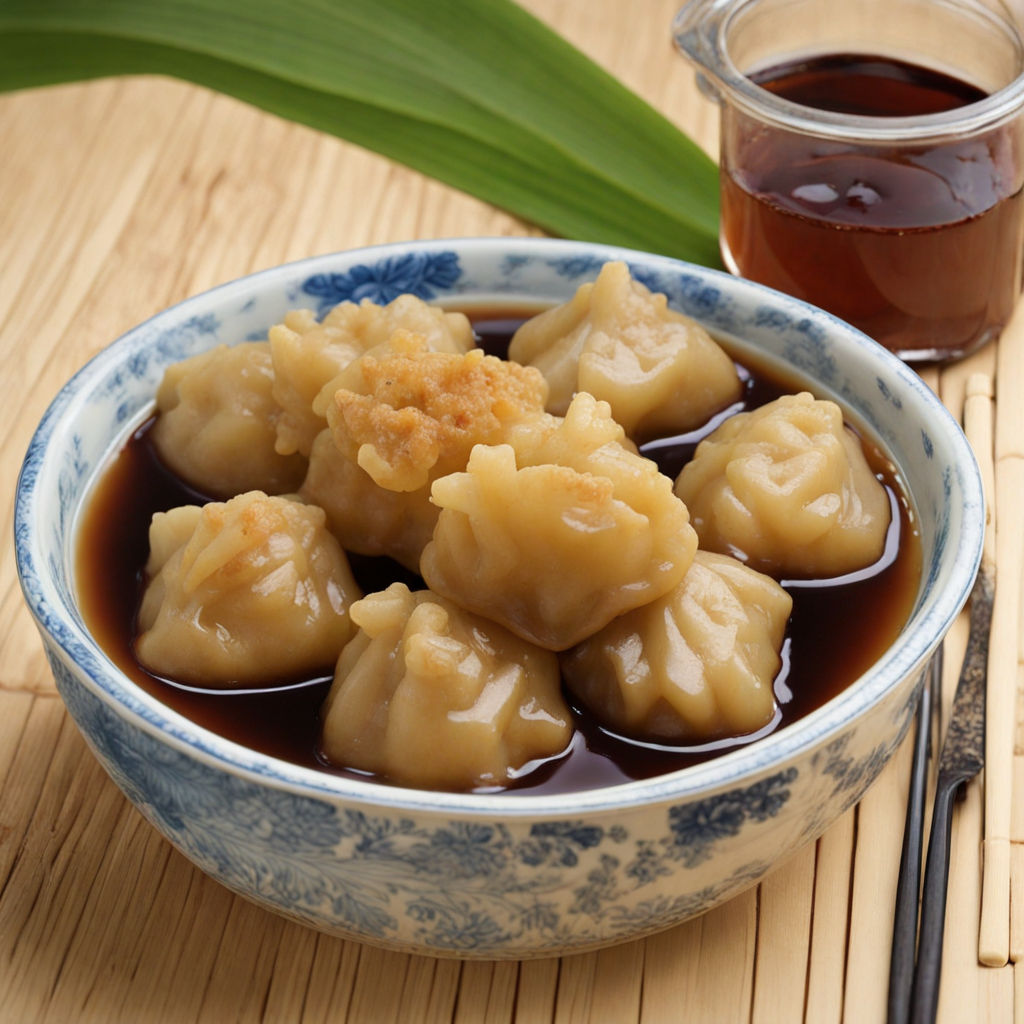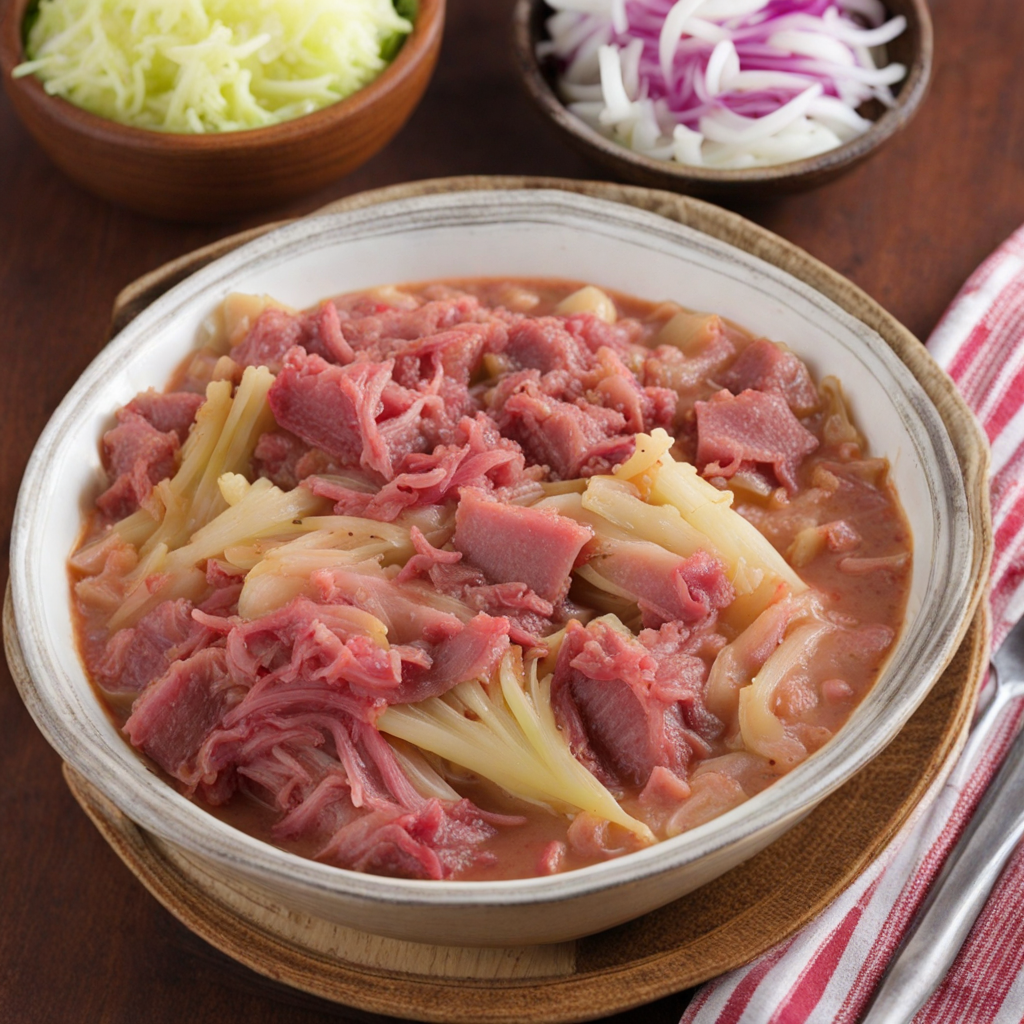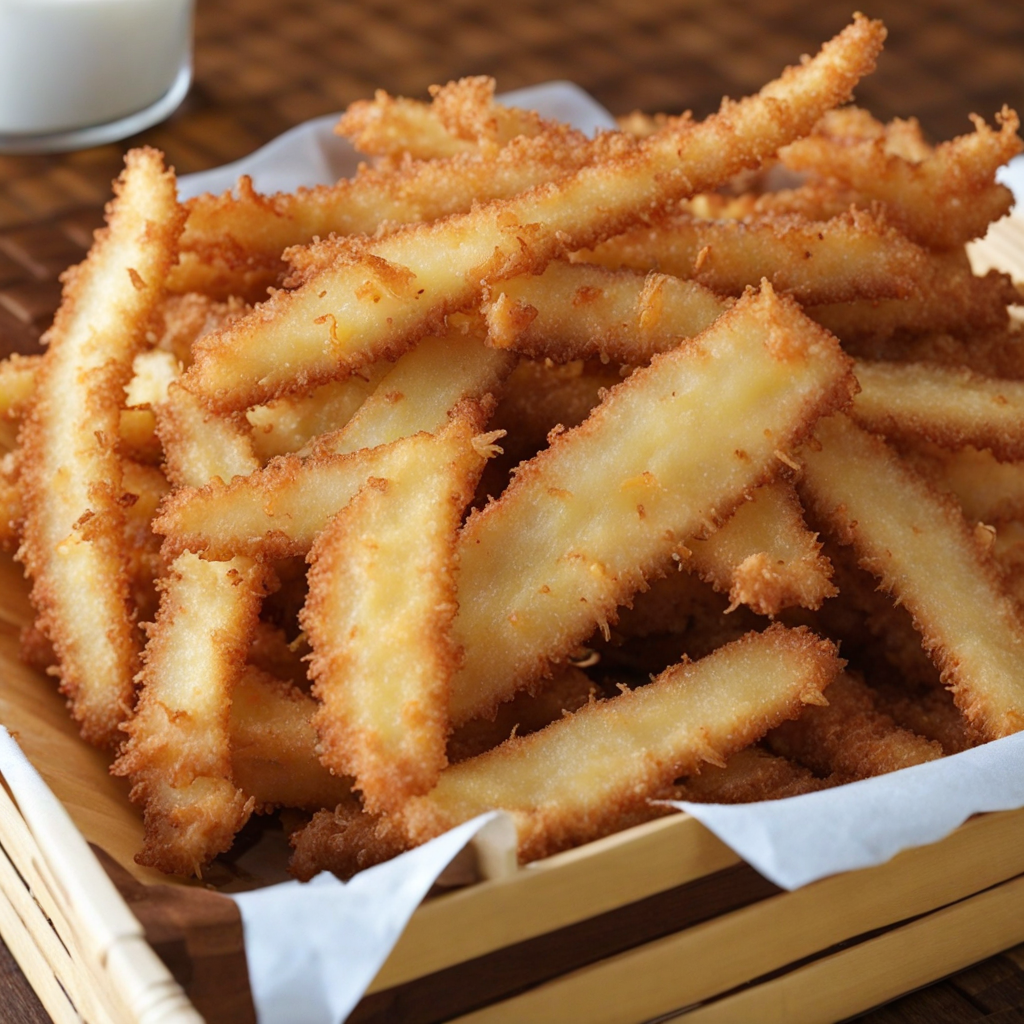Topai
Topai is a delightful traditional dish from Tonga that showcases the island nation's rich culinary heritage. At its core, Topai consists of a unique combination of taro, which is a starchy root vegetable, and coconut cream, resulting in a creamy and slightly sweet flavor profile. The taro is typically steamed or boiled until tender and then mashed or shaped into small balls. The addition of coconut cream enhances the dish, providing a luscious, tropical richness that beautifully complements the earthiness of the taro. One of the most appealing aspects of Topai is its versatile nature. While the classic version is enjoyed as a sweet treat, it can also be adapted to include various flavorings or toppings. Some variations incorporate ingredients like banana or vanilla, adding layers of flavor and making the dish even more enticing. The texture is often a highlight, offering a satisfying chewiness that contrasts with the smooth, velvety coconut cream. This delightful interplay of textures makes Topai a unique experience for anyone looking to explore new tastes. In Tonga, Topai is not just a dish; it's often enjoyed during special occasions and gatherings, making it a part of the country’s cultural fabric. Served warm, it is usually presented as a dessert or snack, inviting people to savor each bite while sharing stories and laughter. The combination of its simple ingredients and the care put into its preparation reflects the communal spirit of Tongan life, making Topai a delicious gateway into the heart of Tongan cuisine.
How It Became This Dish
The Rich History of Topai: A Culinary Gem from Tonga #### Origins of Topai Topai is a traditional Tongan food that serves as a delightful reminder of the islands’ rich cultural tapestry. It is a type of steamed dumpling, typically made from a mixture of cassava (manioke) and coconut cream, sometimes combined with taro or yam. The roots of Topai trace back to the pre-colonial era when the Tongan people relied heavily on the abundant natural resources of their islands. Cassava, a staple crop in many Pacific Island nations, was introduced to Tonga through ancient trade routes, likely from South America, where it originated. Its adaptability to the Tongan soil and climate made it a favored ingredient for many local dishes, including Topai. The integration of coconut, abundant in Tongan culture, further enriched the dish, both in flavor and nutritional value. #### Cultural Significance Topai is more than just a food item; it is a vessel of culture and identity for the Tongan people. Traditionally, it is prepared during special occasions, including feasts, family gatherings, and celebrations of milestones such as weddings and birthdays. The act of making Topai is often communal, reinforcing social bonds and community spirit among families and friends. In Tongan culture, food preparation is an art form, reflecting the values of sharing, generosity, and hospitality. The communal preparation of Topai allows people to come together, share stories, and pass down culinary traditions from one generation to the next. The dish is often presented in large servings, symbolizing abundance and the importance of community in Tongan society. Topai is also steeped in spiritual significance. In many Pacific Island cultures, food plays a crucial role in rituals and ceremonies. Topai can be offered in ceremonial feasts to honor ancestors, express gratitude, or celebrate significant life events. The preparation of Topai often involves prayers and blessings, which imbue the food with a spiritual essence that transcends its physical form. #### Development Over Time Over the centuries, Topai has evolved while maintaining its core ingredients and cultural significance. The introduction of modern cooking techniques and tools has influenced its preparation. Traditionally, Topai was made using a simple method: the cassava was grated, mixed with coconut cream, and wrapped in banana leaves before being steamed in an underground oven called an "umu." This method not only imparted a distinct smoky flavor but also reflected sustainable cooking practices deeply rooted in Tongan culture. In contemporary times, many families still adhere to these traditional methods, valuing the authenticity and flavors they bring. However, with globalization and the influence of Western culinary practices, variations of Topai have emerged. Some modern recipes incorporate ingredients like sugar, vanilla, or various fruits, which cater to different palates and reflect a fusion of culinary traditions. Despite these adaptations, many Tongans remain committed to preserving the traditional recipes passed down through generations. This balancing act between tradition and innovation is emblematic of the broader cultural dynamics in Tonga, where globalization coexists with the resilience of local customs. #### Topai in the Modern Context In recent years, there has been a resurgence of interest in traditional Tongan foods like Topai, particularly among the Tongan diaspora. As Tongans migrate and establish communities around the world, there is a growing desire to reconnect with cultural roots through food. Festivals celebrating Tongan culture now prominently feature Topai, allowing younger generations to experience and appreciate their culinary heritage. Social media platforms have also played a role in revitalizing interest in Topai, as food bloggers and influencers share recipes and stories about Tongan cuisine. This digital space has created a vibrant community where people can exchange tips, celebrate their culinary traditions, and promote Tongan food globally. The increasing visibility of Tongan cuisine, including Topai, has sparked curiosity and appreciation among non-Tongan audiences, who are eager to explore the flavors and stories behind the dishes. Moreover, the global trend toward holistic and sustainable food practices aligns with the traditional values embodied in Topai. The emphasis on local ingredients and communal cooking resonates with contemporary movements that advocate for sustainability and food justice. As people become more aware of the environmental impact of food production, the Tongan practice of using locally sourced ingredients and traditional cooking methods stands as a model for sustainable eating. #### Conclusion The history of Topai is a testament to the resilience and richness of Tongan culture. It encapsulates the spirit of community, the importance of tradition, and the adaptability of culinary practices over time. From its origins as a staple food in pre-colonial Tonga to its modern-day reinterpretations, Topai remains a cherished part of Tongan identity. As the world continues to evolve, so too does the story of Topai. It is a dish that not only nourishes the body but also connects people to their heritage, community, and the land from which the ingredients are sourced. In every bite of Topai, one can taste the history of Tonga—a history steeped in tradition, community, and the enduring power of food to bring people together.
You may like
Discover local flavors from Tonga







